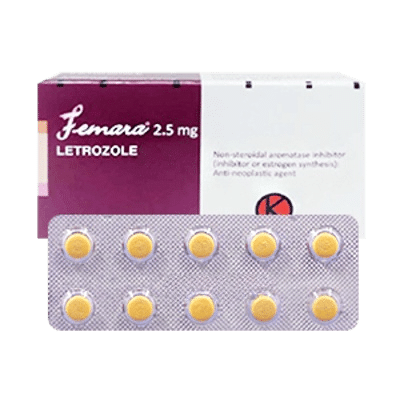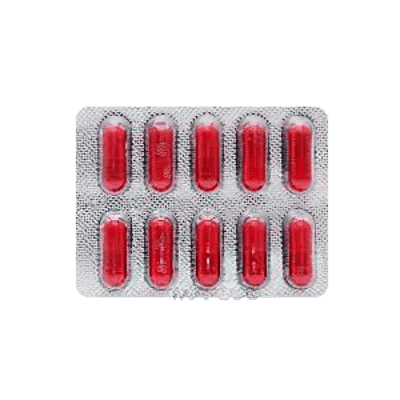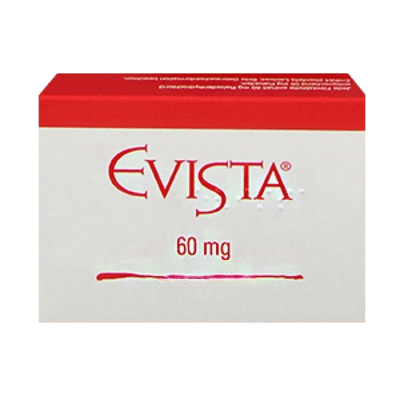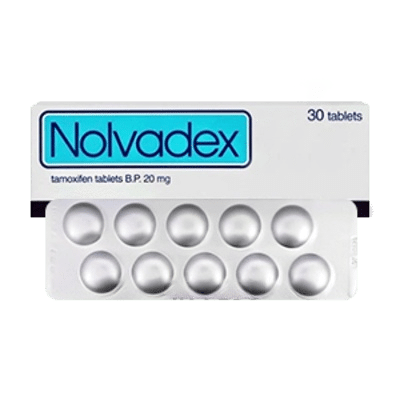I have been using Femara for several months as prescribed by my doctor. There are side effects, of course, but they are quite tolerable. The most important thing is that after starting the treatment, the condition has significantly improved, and the results of the examinations show positive dynamics.

Femara
Active ingredients: Letrozole- Quality products
- Support 24/7
- Fast delivery
What is it?
Femara is the trade name of a drug containing the active substance letrozole. Letrozole belongs to the class of non-steroidal aromatase inhibitors and is used primarily to treat hormone-dependent breast cancer in postmenopausal women. The mechanism of action of letrozole is to suppress the synthesis of estrogens, which helps to slow down or stop the growth of tumor cells sensitive to these hormones.
Composition
Femara is available in tablet form, each of which contains a certain amount of the active substance - letrozole. Additionally, the drug contains auxiliary components that help ensure stability and proper absorption of the drug by the body.
- Letrozole (active substance) in a dosage of 2.5 mg.
- Lactose monohydrate - used as a filler.
- Microcrystalline cellulose - to form a tablet.
- Magnesium stearate - ensures the glide of the components.
- Stabilizers and binders.
These components do not affect the therapeutic effect of the drug, but their presence is important to maintain the quality and ease of administration.
How to use?
Femara is taken orally with a small amount of water. The medicine can be taken before or after meals, as food intake does not affect its effectiveness. However, it is recommended to stick to the same time of administration to maintain a constant level of the drug in the body.
- The standard dosage is 2.5 mg (one tablet) per day.
- The tablet should be swallowed whole, without chewing.
- The duration of the course of treatment is determined by the doctor depending on the patients condition and the stage of the disease.
It is important to strictly follow the specialists instructions, do not exceed the recommended dose and do not stop treatment without consulting a doctor.
How does it work?
The main mechanism of action of Femara is based on the inhibition of the aromatase enzyme, which is involved in the synthesis of estrogens. In postmenopausal women, estrogens are formed mainly due to the conversion of androgens in adipose tissue, and it is this process that the active substance of the drug, letrozole, blocks.
Letrozole reduces the level of estrogens in the body, which leads to a slowdown in the growth or destruction of hormone-dependent tumor cells. This action is effective in the treatment of hormone-dependent breast cancer, especially in the early stages or in the case of a relapse. Femara is also used to prevent the return of the disease after successful treatment.
Indications
Femara is used to treat and prevent certain types of hormone-dependent breast cancer. The drug is widely used both as a primary and adjuvant therapy, especially in postmenopausal women. Its use is aimed at suppressing estrogen activity, which is important for inhibiting the growth of sensitive tumors.
- Treatment of hormone-dependent breast cancer in postmenopausal women.
- Adjuvant (additional) therapy after surgery.
- Prevention of breast cancer recurrence.
- Therapy for metastatic breast cancer.
This drug is often prescribed for a long period of time, which allows for effective control of the disease and prevention of its progression.
Contraindications
Despite the effectiveness of Femara, its use is limited in certain situations related to the characteristics of the body or the presence of concomitant diseases. When prescribing the drug, the doctor must take into account all possible contraindications in order to avoid undesirable consequences.
- Hypersensitivity to letrozole or any of the components of the drug.
- Pregnancy and breastfeeding, since the drug can harm the fetus or infant.
- Children, since the safety and effectiveness of the drug in children have not been established.
- Women before menopause, since the drug is intended only for postmenopausal patients.
- Severe liver or kidney failure (with caution).
The doctor must carefully assess the patients condition to avoid the risks associated with the use of Femara and select alternative treatments, if necessary.
Side effects
Femara may cause side effects related to its effects on the bodys hormonal system. Although many patients tolerate the drug well, some may experience adverse reactions of varying severity. Most of these disappear after the end of treatment or become less severe over time.
- Headaches or dizziness.
- Increased fatigue, weakness.
- Hot flashes, sweating.
- Pain in the bones or joints.
- Dry mucous membranes, especially in the vagina.
- Increased cholesterol levels in the blood.
- Nausea, sometimes accompanied by vomiting.
- Depressive states or mood swings.
If serious side effects occur, such as severe allergic reactions or a significant deterioration in the condition, you must immediately consult a doctor.
Frequently asked questions
Femara Reviews and Experiences
I take Femara as part of a comprehensive treatment. The results are pleasing, although sometimes I am bothered by joint pain. But I feel calmer, knowing that I am doing everything possible to control the disease.
After breast cancer surgery, the doctor prescribed Femara to prevent relapse. At first, there were hot flashes and fatigue, but after a couple of weeks, the body adapted. I am very grateful that there is such an effective drug.









